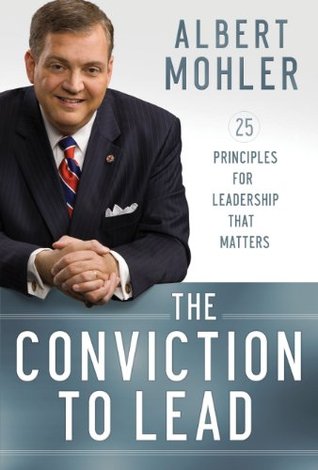More on this book
Community
Kindle Notes & Highlights
Read between
February 21 - March 5, 2020
The leader is almost always steward of more than any job description can cover.
convictional leaders are called to fulfill a stewardship of breathtaking proportions.
We are the stewards of human lives and th...
This highlight has been truncated due to consecutive passage length restrictions.
We are the stewards of time and opportunity. Few
Leaders have to be concerned not only with what their organization is doing but with what it ought to be doing.
We are the stewards of energy and attention.
Leaders radiate energy and draw attention, or they cannot lead.
We are the stewards of reputation and legacy.
we live and lead on the strength of our reputations.
We are the stewards of truth and teaching.
Leaders are entrusted with truth, with deep beliefs and framing convictions.
Those convictions must be taught and retaught, affirmed and reaffirmed, p...
This highlight has been truncated due to consecutive passage length restrictions.
Leadership is a trust, and we will answer to God for that trust.
The requirement of stewards is that they be found faithful.
Organizations Expect Many Things From Leaders, Most of All the Trusted Ability to Decide
Leadership is a blend of roles, responsibilities, and expectations.
To be effective, the leader must earn the trust of the organization and its stakeholders—he must be trusted to make decisions and then to take ownership of them.
Organizations thrive when leaders make the right decisions, and they fail when leaders make the wrong ones.
organizations can suffer worse when leaders refuse to make any decision at all.
Indecisiveness is one of history’s greatest lea...
This highlight has been truncated due to consecutive passage length restrictions.
Failure to make a decision paralyzes the organization,
and making the wrong decisions can be disastrous.
Before making a decision, the leader’s preliminary task is to determine if a decision actually has to be made.
the moment of decision comes
First, define the reality.
Second, identify the alternatives.
Third, apply analysis.
Fourth, pause for reflection.
Fifth, make the decision, and make it count.
Sixth, review and learn.
“Well done, good and faithful servant” is the verdict for which we strive and hope.
Leadership and Morality Are Inseparable
Our Creator gave us laws, principles, precepts, and commandments that guide us, convict us, and protect us. Christian leaders know to be thankful for the common morality that is revealed in nature and has been recognized in some form in virtually every civilization and culture. We are also thankful for the specific moral instruction given to us in the Bible through the commandments and statutes and laws that frame our Christian moral knowledge.
Leadership requires the possession and cultivation of certain moral virtues that allow leadership to happen.
leadership without virtue has meant the collapse of many
One of the greatest temptations that comes to any leader is the temptation to tell something less than the truth.
not telling the truth is a certain recipe for calamity and embarrassment.
We must be ready to tell the truth at all times, even when it hurts. If your followers find out that you are not trustworthy, your leadership is undermined, usually fatally.
The leader shows up when it matters, every time.
The leader is where he needs to be, always.
The leader may have a day out of the office but never a day away from dependability. The leader is the one individual within the organization that is never, ever totally disconnected from those he leads—and the leader who complains about that is not qualified to lead.
Disloyalty is a curse. Great organizations and movements live by the fuel of commitment and loyalty and cannot survive without it.
Loyalty starts with fidelity to conviction and the mission of the organization. It radiates out to loyalty toward those who serve that mission and give their lives, skills, and labor to the cause. Finally, it reaches those who are served by the organization or are its customers.
You cannot lead without tenacity and the unconditional commitment to getting the job done.
Tenacity of purpose is what defines great leadership, and the greater the purpose, the greater the tenacity required.
leaders will be humble, or they will be humbled.
Leaders know how to laugh with their team, with their people, with the public, and at themselves.
The Medium Is Not the Message, You Are—and the Leader Must Know How to Deliver That Message
you are a leader, the media is part of your world.
Never apologize for having a message and for wanting that message to receive the widest possible coverage and exposure.


